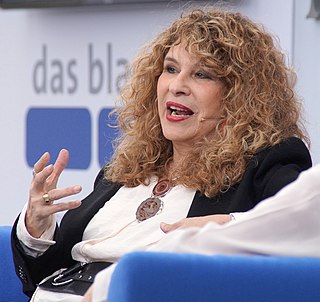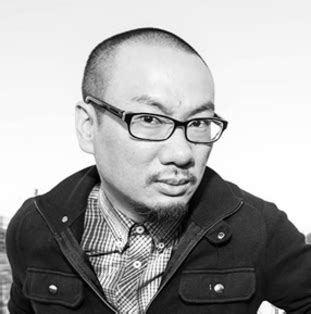A Quote by Gioconda Belli
Poetry for me is very easy. It's like a lightning bolt. I feel this calling, and the first line of the poem comes into my head, and I just have to go to the page, to the typewriter, to the computer or whatever and write it.
Related Quotes
I would read the Shel Silverstein poems, Dr. Seuss, and I noticed early on that poetry was something that just stuck in my head and I was replaying those rhymes and try to think of my own. In English, the only thing I wanted to do was poetry and all the other kids were like, "Oh, man. We have to write poems again?" and I would have a three-page long poem. I won a national poetry contest when I was in fourth grade for a poem called "Monster In My Closet.
My best times are midnight to six actually. I'll leaf through my notebooks and if something catches my eye and I feel like I want to transfer it from the notebook to the page, I do, and then comes this very strange process which is difficult to describe in that I'll write until I get stuck or I can't go any further or I'm boring myself or whatever and then I might go to another poem.
It was early on in 1965 when I wrote some of my first poems. I sent a poem to 'Harper's' magazine because they paid a dollar a line. I had an eighteen-line poem, and just as I was putting it into the envelope, I stopped and decided to make it a thirty-six-line poem. It seemed like the poem came back the next day: no letter, nothing.
I never think of my audience when I write a poem. I try to write out of whatever is haunting me; in order for a poem to feel authentic, I have to feel I'm treading on very dangerous ground, which can mean that the resulting revelations may prove hurtful to other people. The time for thinking about that kind of guilt or any collective sense of responsibility, however, occurs much later in the creative process, after the poem is finished.
That's one of those questions that would just love to have a pat answer. You know, poetry's job is to make us feel good. Poetry exists to allow us to express our innermost feelings. There isn't one role for poetry in society. There are many roles for poetry. I wrote a poem to seduce my wife. I wrote a poem when I asked her to marry me. Poetry got me laid. Poetry got me married.
I write fiction longhand. That's not so much about rejecting technology as being unable to write fiction on a computer for some reason. I don't think I would write it on a typewriter either. I write in a very blind gut instinctive way. It just doesn't feel right. There's a physical connection. And then in nonfiction that's not the case at all. I can't even imagine writing nonfiction by hand.
If I could write directly on a typewriter or a computer, I would do it. But keyboards have always intimidated me. I've never been able to think clearly with my fingers in that position. A pen is a much more primitive instrument. You feel that the words are coming out of your body and then you dig the words into the page.
I edit as I go. Especially when I go to commit it to paper. I prefer a typewriter even to a computer. I don't like it. There's no noise on the computer. I like a typewriter because I am such a slow typist. I edit as I am committing it to paper. I like to see the words before me and I go, "Yeah, that's it." They appear before me and they fit. I don't usually take large parts out. If I get stuck early in a song, I take it as a sign that I might be writing the chorus and don't know it. Sometimes,you gotta step back a little bit and take a look at what you're doing.





































